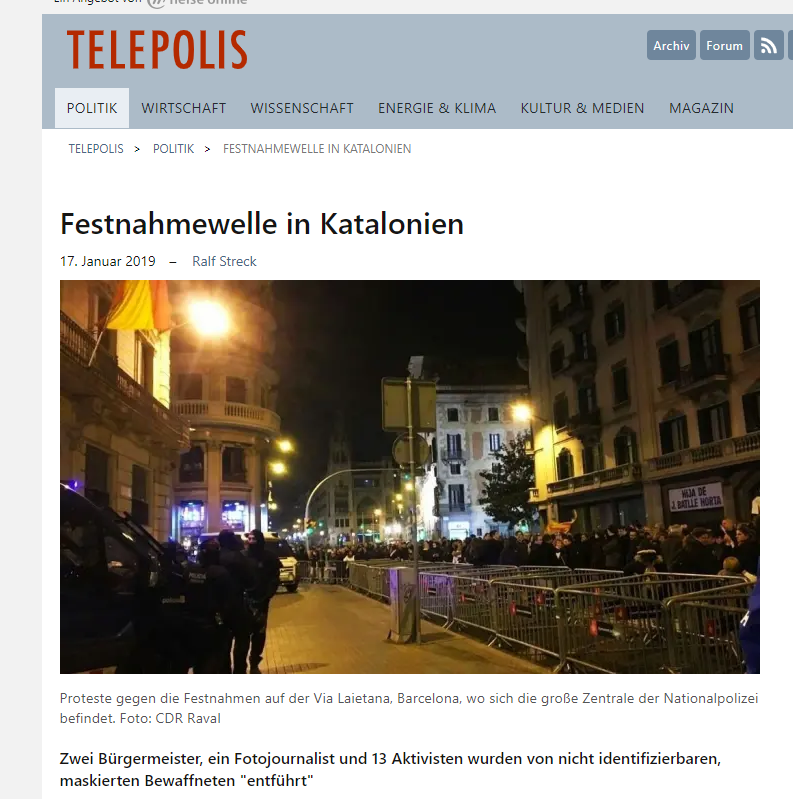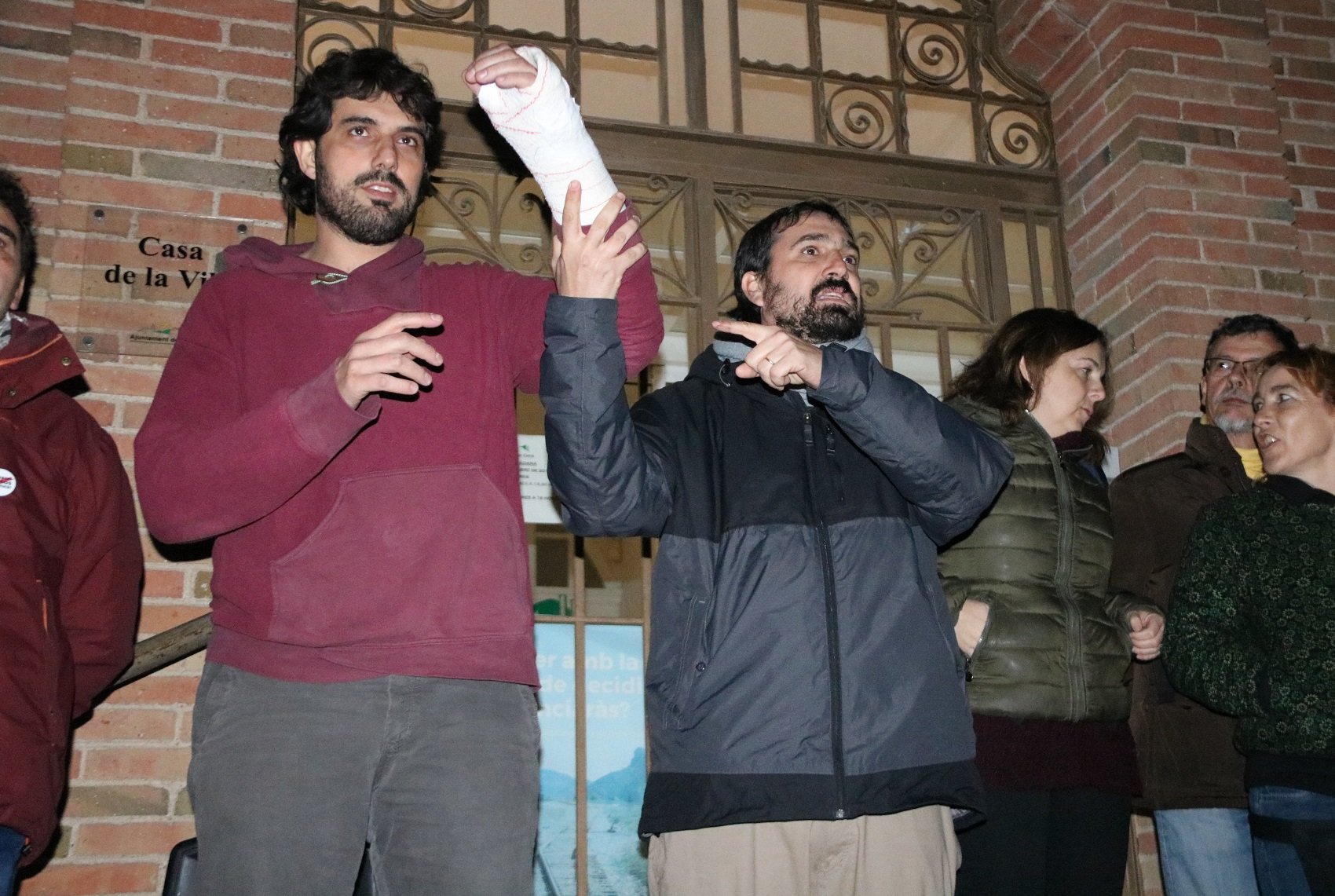German newspaper Telepolis has published a hard-hitting report on yesterday's multiple arrests in Girona, saying: "Whilst the whole world was watching the Brexit proceedings and the inauguration of the Andalusian government with the help of the far-right Vox, Spanish repression in Catalonia hits again".
From the very start, Telepolis describes the 16 as being "'kidnapped' by unidentifiable, masked people with guns". They were all released over the course of the day.
"Even the defence lawyer [Benet Salellas] has no legal explanation for the arrests. That they don't pose any special danger was made clear by them all being set free on the same day. The arrests are justified by police because they occupied train lines. However a summons and not an arrest would be usual for suspected "public disorder"," the journalist writes.
They also report that the mayor of Verges, Ignasi Sabater, had his left hand injured and will have to have it immobilised for two weeks.

Telepolis also goes into details about the detention of El Nacional photojournalist Carles Palacio. They narrate that he was arrested by officers in civilian clothes, who "bundled him into a car". The events, they note, were documented by fellow photojournalist Jordi Borràs as the pair left a bar.
The newspaper also puts yesterday's events into context. They note that Borràs himself had his nose broken by a police officer in plainclothes. Similarly, they note that the director of Catalonia's public TV3 and Catalunya Ràdio Vicent Sanchis and Saül Gordillo, respectively, are facing charges of having broadcast advertising for the 2017 independence referendum. The reporter adds that TV3 journalists have been the target of repeated attacks at unionist demonstrations. Indeed, a camera operator from Telemadrid was attacked at a Ciudadanos event by attendees believing they were from TV3.
"That Catalan public broadcasting is a thorn in the side of Spanish unionists has long been clear, since it was attempted, in autumn 2017, to put it under Spanish 'administration'," they conclude.

